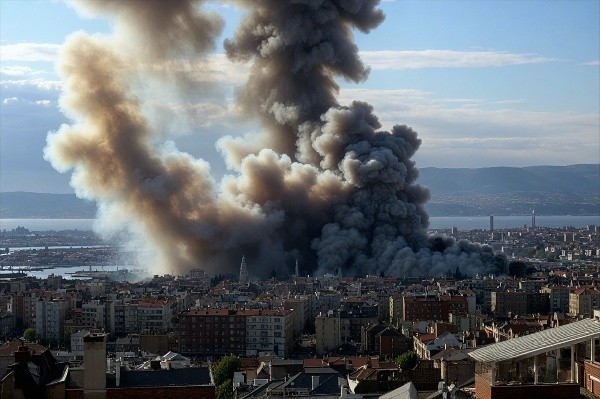Iran’s Plan to Strike Back Against the U.S.
Iran’s Military Preparations Following U.S. Attacks
Loading...

US President Joe Biden said the Israel-Hezbollah ceasefire agreement is ‘designed to be a permanent cessation of hostilities’.
A New Dawn for Peace
In a significant development, a ceasefire agreement between Israel and the Lebanese militant group Hezbollah has officially come into effect, marking a hopeful turn in a conflict that has persisted for nearly 14 months. The ceasefire, which began at 4 AM local time (02:00 GMT) on Wednesday, was announced by U.S. President Joe Biden, who emphasized that the agreement is intended to establish a permanent cessation of hostilities. This announcement comes in the wake of a devastating conflict that has resulted in the deaths of thousands and widespread destruction on both sides of the Lebanese-Israeli border.
Biden's Commitment to Peace
During a press conference, President Biden stated, “The fighting across the Lebanese-Israeli border will end… This is designed to be a permanent cessation of hostilities.” He expressed optimism that civilians would soon be able to return to their homes and begin the process of rebuilding their lives, including their communities, schools, and businesses. Biden's remarks reflect a broader commitment to stabilizing the region and addressing the humanitarian crisis that has unfolded due to the ongoing violence.
Hezbollah, which has not directly participated in the negotiations, has yet to issue a formal statement regarding the ceasefire. However, Lebanese parliamentary speaker Nabih Berri acted as a mediator on behalf of the group, indicating a level of tacit agreement. Lebanon’s caretaker Prime Minister Najib Mikati welcomed the ceasefire, affirming the importance of ending hostilities between the two parties.
Israeli and International Reactions
Israeli Prime Minister Benjamin Netanyahu confirmed that his government had approved the ceasefire, expressing gratitude to President Biden for his understanding of Israel's need to maintain its military operations if necessary. As part of the ceasefire terms, Israel is set to gradually withdraw its forces from southern Lebanon over the next 60 days, allowing the Lebanese Army and state security forces to take control of the area.
In a joint statement with French President Emmanuel Macron, Biden reiterated the commitment of both nations to ensure the ceasefire is fully implemented and enforced. The U.S. and France also pledged to support international efforts aimed at strengthening the Lebanese Armed Forces and fostering economic development throughout Lebanon, which is crucial for long-term stability in the region.
Ongoing Violence and Humanitarian Concerns
Despite the announcement of the ceasefire, violence continued in the hours leading up to its implementation. Israeli airstrikes targeted various locations in Lebanon, including Beirut’s southern suburbs, resulting in casualties and destruction. Reports indicated that at least seven people were killed and dozens injured in an attack on a building housing displaced individuals. The ongoing bombardment raised concerns about the feasibility of the ceasefire holding in the face of such violence.
Since the conflict escalated in October 2023, Lebanon has seen significant loss of life, with over 3,700 Lebanese reported dead and nearly 16,000 wounded. The humanitarian situation remains dire, with many civilians displaced and in urgent need of assistance.
Looking Ahead: A Broader Peace Effort
As the Biden administration approaches the end of its term, the ceasefire agreement represents a critical moment in U.S. foreign policy in the Middle East. While the ceasefire between Israel and Hezbollah is a positive step, it does not address the ongoing conflict in Gaza, which remains a pressing issue. Biden has indicated plans to engage with regional partners, including Turkey, Egypt, and Qatar, to pursue a ceasefire in Gaza as well.
In conclusion, while the ceasefire between Israel and Hezbollah offers a glimmer of hope for peace in the region, the path forward remains fraught with challenges. The international community's role in supporting Lebanon's stability and addressing the broader conflicts in the region will be crucial in the coming months.
Editor
Iran’s Military Preparations Following U.S. Attacks
Troops remain in five strategic locations, raising fears of renewed tensions and long-term occupation.
Opposition forces have taken control of the capital after a significant offensive. Here is how it unravelled.
